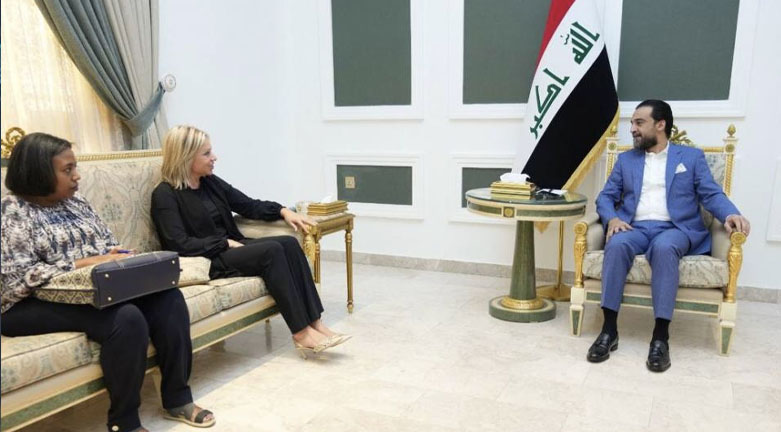Iraqi Parliament Speaker, UN envoy address elections in Iraq and Kurdistan Region
The latest developments regarding the country's political situation were discussed at the meeting.

ERBIL (Kurdistan 24) – Iraqi Speaker of Parliament Mohammad al-Halboosi on Wednesday received Special Representative of the United Nations Secretary-General for Iraq Jeanine Hennis-Plasschaert in Baghdad.
The latest developments regarding the country's political situation were discussed at the meeting.
Additionally, issues related to the Kurdistan Region parliamentary elections, the provincial council elections, and the Iraqi Independent High Electoral Commission’s (IHEC) work were also highlighted.
On July 19, the IHEC proposed holding the Kurdistan Region’s sixth parliamentary election on Feb. 18, 2024.
Read More: Iraq’s electoral body proposes early 2024 for Kurdish parliamentary election
Previously on March 20, 2023, the Iraqi parliament unanimously approved Nov. 6 as the date of provincial council elections. The parliament also voted on Articles 15 and 16 of the electoral law amendment. According to Article 15, 320 seats will be distributed to the provinces, and nine seats will be distributed to the quotas as follows:
- Christians receive five seats in Baghdad, Erbil, Duhok, and Nineveh
- Sabians receive one seat in Baghdad Province
- Feyli Kurds receive one seat in Wasit Province
- Shabak receive one seat in Nineveh Province
- Yazidis receive one seat in Nineveh Province
In 2019, the Iraqi parliament decided to dissolve its provincial councils in addition to the Kurdistan Regional Government provincial councils, while only restarting the process recently. In addition, the Iraqi parliament has also decided to allow governors to manage financial and administrative affairs until provincial councils are elected.